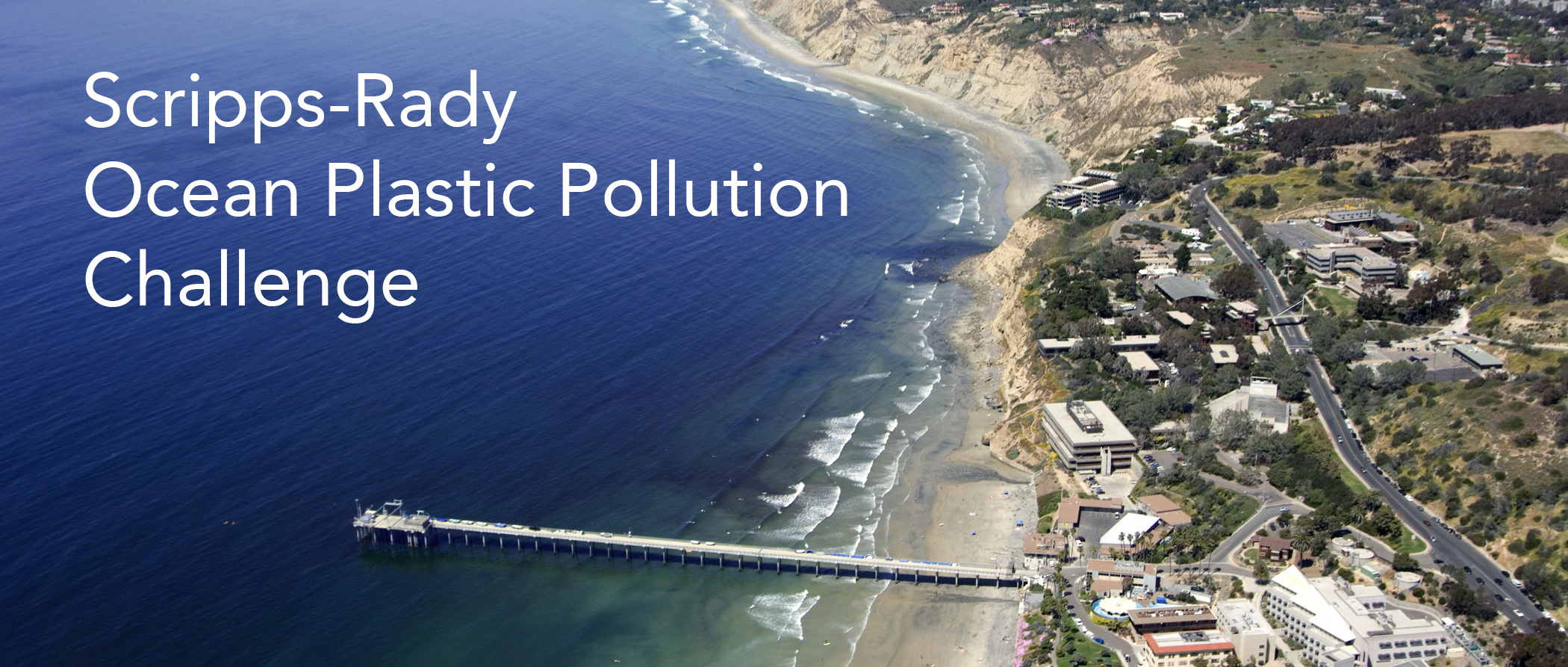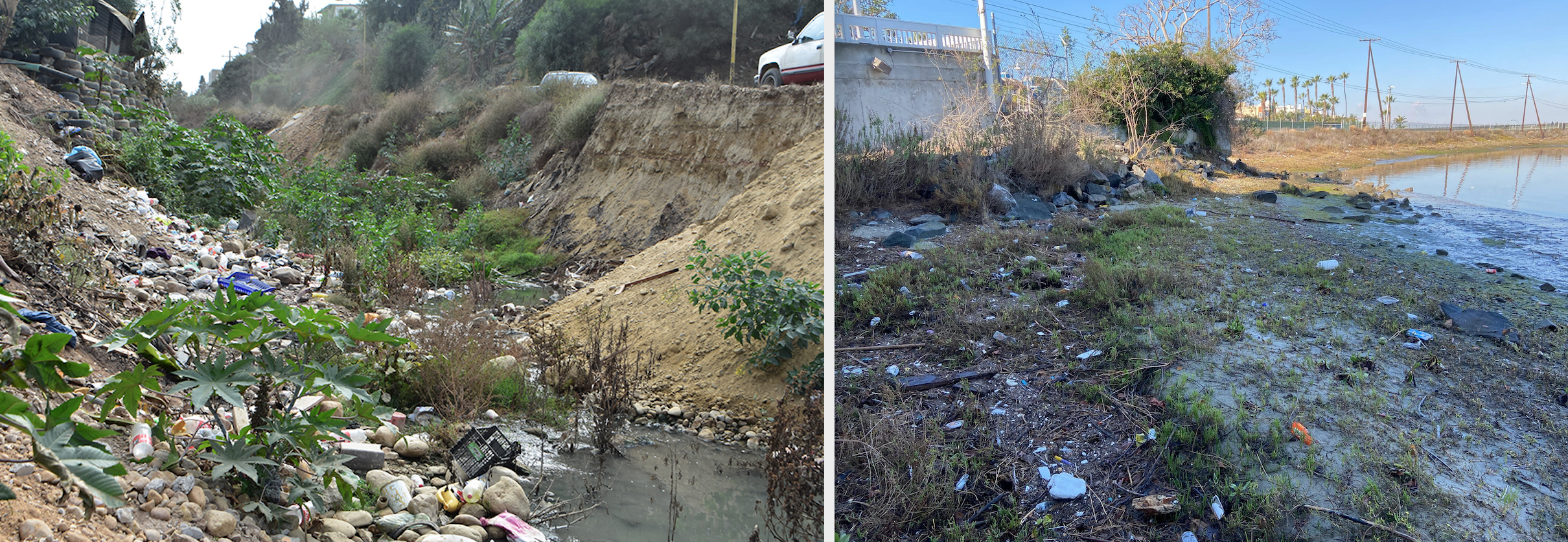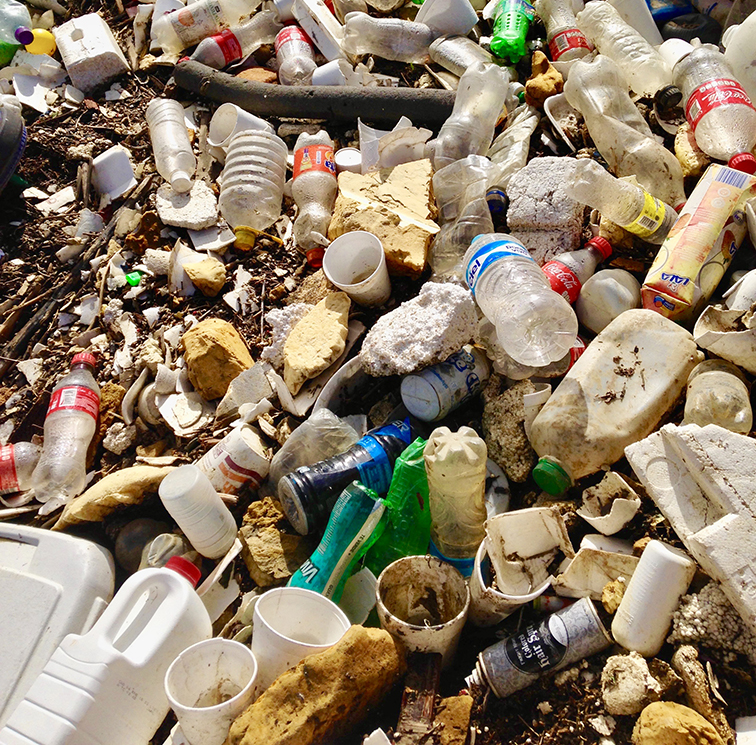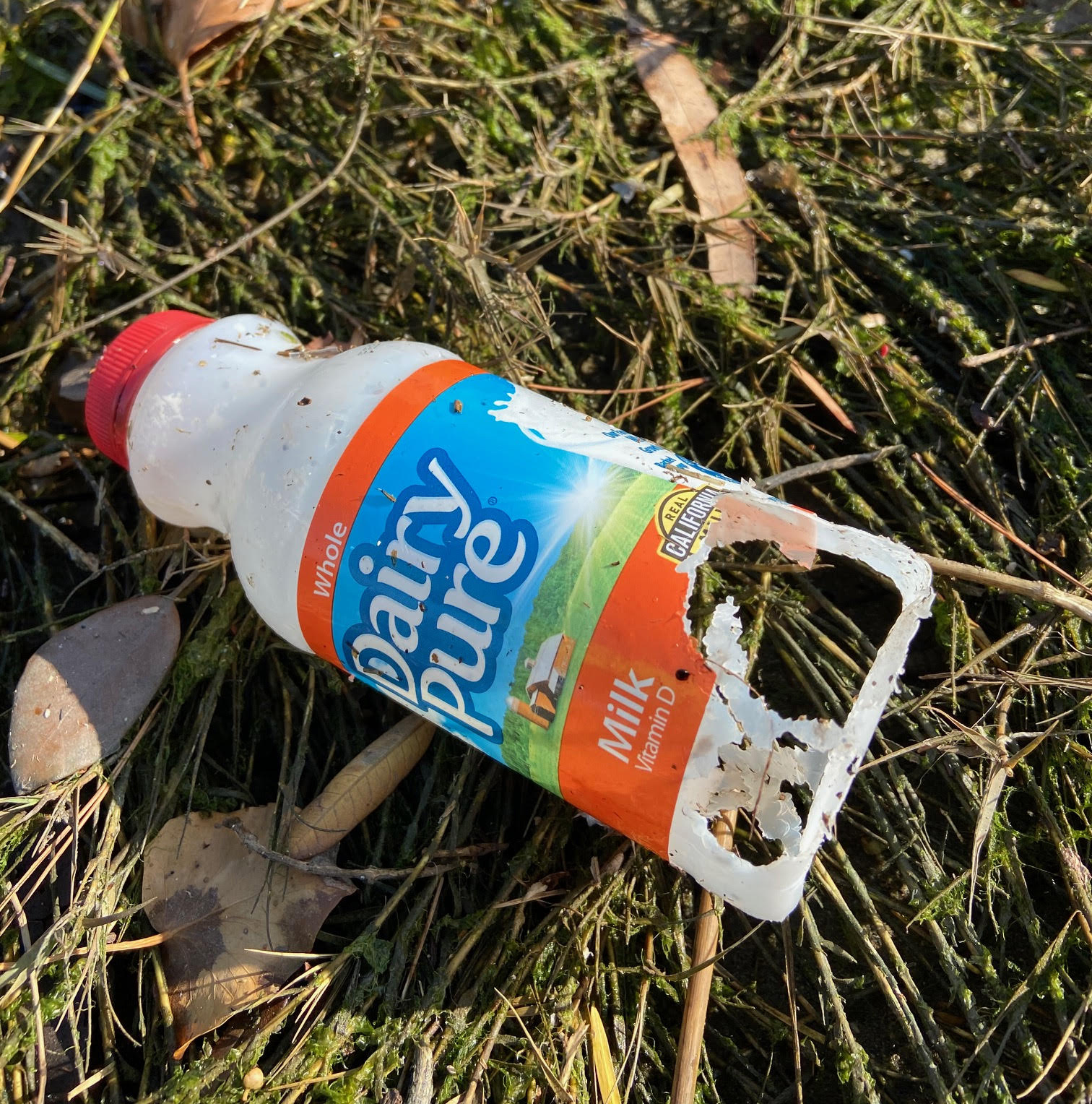
SCRIPPS-RADY OCEAN PLASTIC POLLUTION CHALLENGE
Blog Post: February 1, 2021

Trash Data Treasure: Hunting for Solutions to Plastic Waste
By Charlotte Stevenson
February 1, 2021
We know that some of the best solutions to any problem are informed and guided by facts, and one of the best paths to cold, hard facts is through data collection. To many of us, collecting and analyzing data can be intimidating, but to some remarkable individuals, looking at data is like following a map to buried treasure.
Recently, the Scripps-Rady Ocean Plastic Pollution Challenge participants learned about California’s trash policy, monitoring, data availability, and usage. Shelly Moore, Research Scientist at the San Francisco Estuary Institute and Executive Director of the Moore Institute for Plastic Pollution Research, moderated an information-packed course on California’s plastic problem through the lens of data mapping. Shelly and her panelists--Greg Gearheart PE, Deputy Director, Office of Information Management, California State Water Resources Control Board, and Win Cowger, a Ph.D. candidate in Environmental Sciences at the University of California, Riverside--made quite a case for the treasure that can be mined out of data sets and the power of data when it is driven by the right questions.
Panelist Win Cowger shared more information and resources with the participants than perhaps has ever been shared in a 20 minute period of time. Win walked participants through various data sets and case studies that illuminated the importance of how you obtain, visualize, and then interpret data. One roadblock he often finds, especially when looking at plastic pollution, is that data is labeled differently by different monitoring efforts. Win emphasized the importance of labeling data consistently. To a computer, a “bottle” is not the same as a “beverage container,” so a “taxonomy” of trash is imperative to ensure data sets can be combined. For instance, when data sets from several different river, beach, or ocean cleanups can be combined into mega data sets, the true treasure is revealed. Big data--which can reveal regional patterns and clearer evidence for sources of pollution--are necessary to inform real policy change at state, country and industry levels.
Win has created a first-of-its-kind and self-named “Trash Data Treasure Trove,” currently consisting of 50 immense data sets. Win himself labeled what he does as “rummaging in the trash for buried treasure,” but Win’s ability to link data sets together, code in every language out there, and visualize enormous data sets in ways that are useful for policymakers proved his ability to find treasure where others cannot.
Challenge participant Grace Lee, ReThink Disposable Program Director of Clean Water Action, a national nonprofit, said, “the presentations today sparked some ideas for what type of data we still need and what we can do with our existing trove of data. I never realized how unknown possibilities behind data could be so inspiring. Having data can open up so many opportunities to make real change.” Challenge participant Will Quinn, M.S. business analytics candidate at the Rady School of Management at UC San Diego, was also ready to go treasure hunting after Win’s session. “This session was very informative and it gave us an idea of what databases we should be looking for and working with. The Open Specy and Trash Taxonomy programs look like they will be extremely useful in the data mapping process.”
Course Panelist Greg Gearheart PE, Deputy Director, Office of Information Management, California State Water Resources Control Board, walked the participants through the current regulatory landscape for trash in the state, including the California Ocean Plan, water quality objectives, stormwater permits, and the results of past “trash datathons” hosted by the State Board’s Office of Information Management and Analysis with the tagline, “join us for a day of digging through trash-related data.” Greg also emphasized the incredible advantage to being able to design a study with a specific policy question in mind. “Deciding on a data collection method is very important!” said Greg. “Management monitoring questions drive the method you should use.”
Challenge participant Cleo Stratmann, a Ph.D. candidate at École des Ponts ParisTech in France, is studying microplastic river pollution. “It is great to see the involvement of local authorities and administrations like Greg Gearheart and the California State Water Resources Control Board in plastic pollution management...and that they are collaborating with institutions and citizens,” remarked Cleo. She also said she could see the challenge ahead with so many disparate sources of data across the state, but, characteristic of many of the Scripps-Rady Challenge participants, she saw opportunity for creativity where most other people feel crushed by the size and scale of an issue like plastic pollution.
Challenge participant Dr. Julie Hopper, Postdoctoral Teaching Fellow in Biological Sciences and Environmental Studies at University of Southern California, also could see great potential in mining through data. “It is important to have an open mind when it comes to analyzing and visualizing the data and letting the data speak for themselves to show you novel ideas and questions,” said Julie.
Shelly Moore was part of one of the first beach trash studies in California in 1998 and has guided many other trash related studies since then. Although mining facts out of old data sets can be very useful, Shelly, like Greg, also emphasized the powerful potential in formulating the right questions beforehand to drive robust data collection. Shelley posed a number of important questions to participants as examples:
- Are the policies we are putting in place making a difference?
- How much trash is in the waterways? Where are the hotspots?
- How much is actually making its way to the ocean?
- What brands are most represented?
- How do homeless communities contribute, and what are municipal options to help those communities?
With questions like these, Shelly moved the conversation deeper into the complex environmental justice and socioeconomic issues that are deeply embedded in the issue of plastic waste. These are the difficult issues that the Scripps-Rady Ocean Plastic Pollution Challenge participants hope to address as they find innovative, systemic, and effective ways of curbing the flow of plastic into the ocean in Southern California.
Shelly’s goal for her course was to have Challenge participants leave with a good understanding of the available data on plastic debris and the questions of concern around trash and plastic data for a variety of stakeholders in California. Participant Pilar Garcia, who has a Ph.D. in Structural Geology, was an NSF Minority Graduate Fellow, and worked as a Senior Petroleum Geologist for several years for Chevron Thailand Petroleum, INC in Bangkok, summed it up beautifully: “I think it’s great to know that there are some significant resources out there that we can learn from, contribute to, and use as jumping off points for the next phase of the Challenge.”
In the next phase of the Challenge, the Data Team, including Pilar, Julie, Cleo, William, Grace and several others, will be hunting for treasure in a vast sea of data. We hope they find gold.

Plastic trash in Los Laureles Canyon, Tijuana, Mexico; photo courtesy: 4Walls International.


